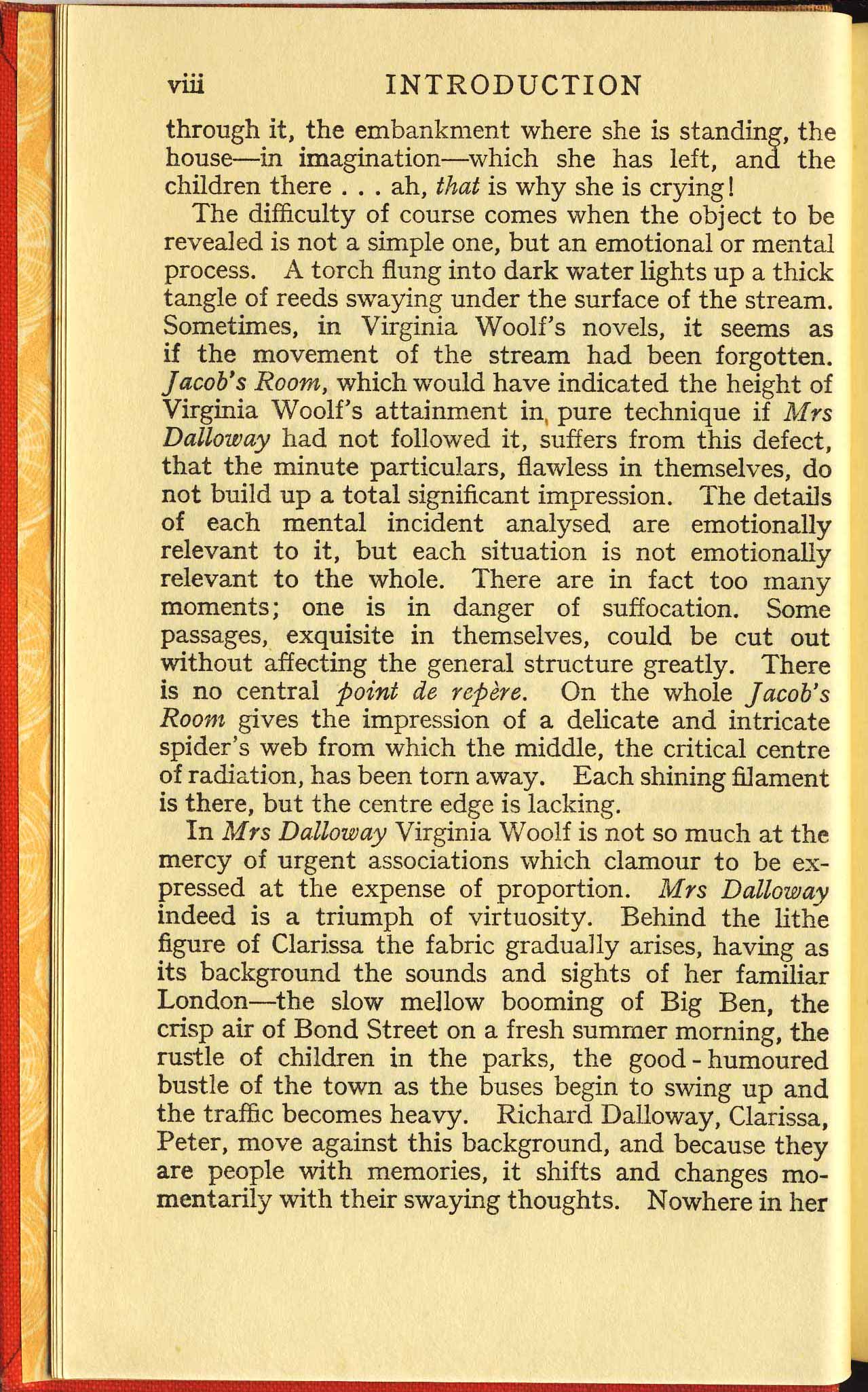
The difficulty of course comes when the object to berevealed is not a simple one, but an emotional or mentalprocess. A torch flung into dark water lights up a thicktangle of reeds swaying under the surface of the stream.Sometimes, in Virginia Woolf’s novels, it seems asif the movement of the stream had been forgotten.Jacob's Room, which would have indicated the height ofVirginia Woolf’s attainment in pure technique if MrsDalloway had not followed it, suffers from this defect,that the minute particulars, flawless in themselves, donot build up a total significant impression. The detailsof each mental incident analysed are emotionallyrelevant to it, but each situation is not emotionallyrelevant to the whole. There are in fact too manymoments; one is in danger of suffocation. Somepassages, exquisite in themselves, could be cut outwithout affecting the general structure greatly. Thereis no central point de ropére. On the whole Jacob'sRoom gives the impression of a delicate and intricatespider’s web from which the middle, the critical centreof radiation, has been torn away. Each shining filamentis there, but the centre edge is lacking.
In Mrs Dalloway Virginia Woolf is not so much at themercy of urgent associations which clamour to be ex-pressed at the expense of proportion. Mrs Dallowayindeed is a triumph of virtuosity. Behind the lithefigure of Clarissa the fabric gradually arises, having asits background the sounds and sights of her familiarLondon—the slow mellow booming of Big Ben, thecrisp air of Bond Street on a fresh summer morning, therustle of children in the parks, the good—humouredbustle of the town as the buses begin to swing up andthe traffic becomes heavy. Richard Dalloway, Clarissa,Peter, move against this background, and because theyare people with memories, it shifts and changes mo-mentarily with their swaying thoughts. Nowhere in her









